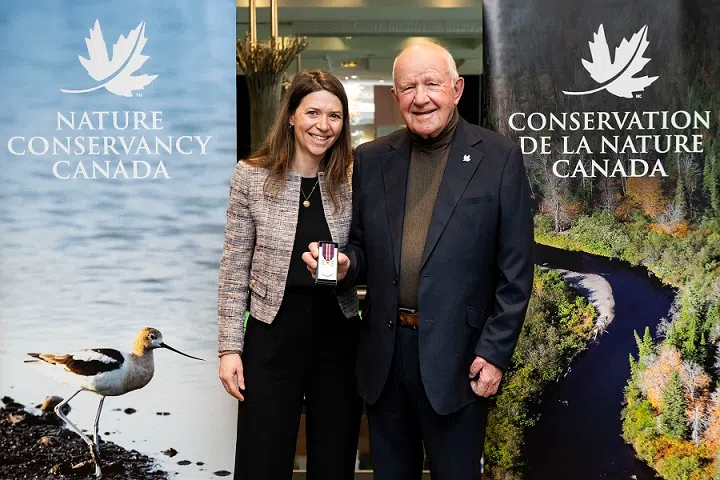A Tobermory man has been recognized with a King Charles III Coronation medal for his decades of work in conservation.
Bill Caulfeild-Browne, a retired business executive has volunteered with the Nature Conservancy of Canada since 1998 performing the roles in audit, investments and governance and was national board chair from 2015-2017. He was also a member of Parks Canada’s Advisory Committee for local National Parks.
He was nominated by the Nature Conservancy of Canada, a group that works with willing private landowners who wish to conserve their wetlands, forest, shoreline and rivers edge areas.
Caulfeild-Browne is also a nature photographer as a hobby. He’s done a lot of photography for the Nature Conservancy of Canada and has also produced a two books ‘Images & Origins’ and ‘Wild Canada’ to raised funds for the nature conservancy.
“It’s gratifying to be able to pursue one’s hobby and find that it’s useful to other people to conserve,” says Caulfield-Browne in an interview with Bayshore Broadcasting News.
Sharing a lifelong philosophy of his own, he says, “A passion for nature is a reward in itself. You don’t need a reward if you love nature because just getting out and enjoying it is the reward.”
He adds, “Having said that, it is nice to get the recognition and I appreciate those who recommended me for it.”
Caulfeild-Browne notes, “There’s a lot of evidence that taking a walk in nature, not necessarily wild, wild nature but real nature is psychologically, calming, it’s good for the soul, it’s good for your psyche. I certainly find that’s true. If you feel stress or tense, go for a for a good walk in the country.”
Caulfeild-Browne says he’s fortunate to have visited every province and territory in Canada. He says while he does enjoy warm places in the winter, “There’s so much to see in Canada, why do I need to go anywhere else?”
He adds, “There’s an awful lot to see here, and I don’t think our country honestly is appreciated enough.”
In describing the Nature Conservancy’s work, he says, “The mission is to conserve ecologically sensitive land. To make sure that we’re looking after the special places and it’s a process of raising funds and buying land. We do get support from various governments but we try to make sure that we do own the land or at least own the rights to the land rather than having other bodies do it.”
Caulfeild-Browne explains, “You can own things, in which case you can decide exactly how they’re to be dealt with or persuade governments to buy them and then they look after them. We tend to go to the former. Which isn’t to say we haven’t worked with governments, we do all the time. The important thing is to conserve the land.”
He notes, it’s so often people get very keen on conserving, but adds, “The fact is, money has to be raised to get the job done and of course we have to have staff to make sure it’s scientifically viable and the ecological sensitivity is science based and not just because somebody happens to think it’s a pretty view.”
Since 1962, with the help of Canadians across the country, the Nature Conservancy of Canada has restored more than 15 million hectares.
Catherine Grenier, President and CEO with Nature Conservancy of Canada, who presented the medal to Caulfeild-Browne says in a statement, “His leadership, passion, and tireless efforts continue to inspire and uplift the conservation community. We are proud to recognize this great Canadian for his incredible contributions.”









